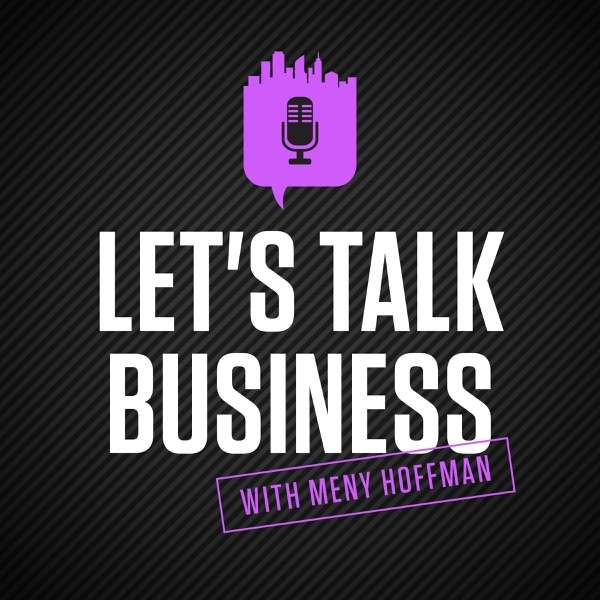Please note: as of 3/31/22, ARK’s clients own greater than 1% of the shares outstanding of Zoom Video Communications.
Read our full valuation article here.
According to ARK’s open-source research and model, Zoom’s share price could approach $1,500, compounding at a 76 percent annual growth rate in 2026. In today’s episode, Will Summerlin and Andrew Kim talk through their thesis for Zoom, as well as their open-source Zoom model that’s available on GitHub. They cover the type of top-down research that we do at ARK, as well as some of the research that they have done for Zoom. Tuning in, you’ll hear their bottoms-up analysis of Zoom as Will and Andrew dig into the modes that they believe Zoom has, as well as the competitive dynamics they think are going to play out in the communication software space. They also talk through their model and key drivers and, finally, close out with the overall AI opportunity that ARK sees playing out over the next decade and how they believe Zoom can capture some of that opportunity. For all this and more, make sure not to miss today’s conversation!
“We think Zoom is in a really unique position to benefit from this trend towards AI productivity. Generally speaking, meetings have a lot of room to improve when it comes to productivity. We think AI can be part of the solution.”
Key Points on this Episode:
- The type of top-down research we do at ARK.
- Understanding the opportunity for communication software in the context of hybrid work.
- Why we believe Zoom is in a unique position to benefit from the trend towards AI productivity.
- Our bottoms-up analysis of Zoom’s people, management, and culture; product leadership; execution; and barriers to entry.
- Zoom’s infrastructure, enterprise readiness, AI data advantages, and third-party ecosystem.
- The four drivers that we attribute the most important to in our Zoom model.
- Unpacking the manual and Monte Carlo models of our Zoom Valuation Model on GitHub.
- Our bull and base forecasts for Zoom’s top-line growth.
- How we see Zoom capturing AI opportunity thanks to declining deep learning training costs, among other factors.
- The interesting role AI could play in making Zoom meetings more productive.
- We encourage you to download the model, put in your own assumptions, play around with it, and provide us with your feedback on Twitter!
DISCLOSURE
The forecasted performance and price estimates herein are subject to revision by ARK and provided solely as a guide to current expectations. There can be no expectation that the specific security will achieve such performance or that there will be a return of capital. Past performance is not indicative of future results.
FORECASTED PERFORMANCE RESULTS ARE HYPOTHETICAL AND HIGHLY SPECULATIVE, AND PRESENT MANY RISKS AND LIMITATIONS. The recipient should not consider these estimated prices alone in making an investment decision. While ARK believes that there is a sound basis for the forecasts presented, no representations are made as to their accuracy, and there can be no assurance that such forecasts or returns will be achieved by the specific security.
The recipient is urged to use extreme caution when considering the forecasted performance, as it is inherently subjective and reflects ARK’s inherent bias toward higher expected returns. Any higher returns should be viewed as a measure of the relative risk of such investments, with higher forecasted performance generally reflecting greater risk. There is no guarantee that any results will align with the forecasted performance, and they might not be predictive. Some or all results may be substantially lower than projected results and, as with any investment, it is possible that you could lose money.
FORECASTED performance results (single security model simulation forecasts) have many inherent limitations. A recipient account might or might not hold this single security, and the account performance will be affected in proportion to its holding size and the amount of price fluctuation over time. No representation is being made that any client account will or is likely to achieve profits or losses tied to a security in the security model forecasts. In fact, there could be significant differences between these forecasted performance results and the actual results realized.
Forecasted performance has not been achieved by the security, and like all modeled, projected or hypothetical performance, it is important to note that there are multiple versions of a model, and ARK has a conflict of interest in that we have an incentive to show you the best performing results. These forecasts rely on models, which calculate hypothetical performance. Several of the limitations of hypothetical performance models include: 1) reliance on a variety of data obtained from sources that are believed to be reliable, but might be incorrect, inaccurate or incomplete and ARK does not guarantee the accuracy or completeness of any information obtained from any third party, 2) potential inclusion of inherent model creation biases, data discrepancies and/or calculation errors that could cause actual results to differ materially from those projected, 3) NO reflection of the impact that material economic and market factors might have had on investment decisions that would have been in actual portfolios being managed at the time and do not involve market risk, and 4) NO guarantee of future investment results. The forecasted results rely on assumptions, forecasts, estimates, modeling, algorithms and other data input by ARK, some of which relies on third-parties, that could be or prove over time to be incorrect, inaccurate or incomplete.
The forecasted returns are based on a variety of criteria and assumptions, which might vary substantially, and involve significant elements of subjective judgment and analysis that reflect our own expectations and biases, which might prove invalid or change without notice. It is possible that other foreseeable events that were not taken into account could occur. The forecasted performance results contained herein represent the application of the simulation models as currently in effect on the date first written above, and there can be no assurance that the models will remain the same in the future or that an application of the current models in the future will produce similar results because the relevant market and economic conditions that prevailed during the performance period will not necessarily occur. The results will not be updated as the models change, or any information upon which they rely changes. There are numerous other factors related to the markets in general or to the public equity security specifically that cannot be fully accounted for in the preparation of forecasted performance results, all of which can adversely affect actual results. For these reasons, forecasted performance results will differ, and could differ significantly from actual results. FORECASTED PERFORMANCE RESULTS ARE SUBJECT TO REVISION AND PRESENTED FOR ILLUSTRATIVE PURPOSES ONLY.
While ARK’s current assessment of the subject company may be positive, please note that it might be necessary for ARK to liquidate or reduce position sizes prior to the company attaining any forecasted valuation pricing due to a variety of conditions including, but not limited to, client specific guidelines, changing market conditions, investor activity, fundamental changes in the company’s business model and competitive landscape, headline risk, and government/regulatory activity. Additionally, ARK does not have investment banking, consulting, or any type of fee-paying relationship with the subject company.

 Our TOPPODCAST Picks
Our TOPPODCAST Picks  Stay Connected
Stay Connected






